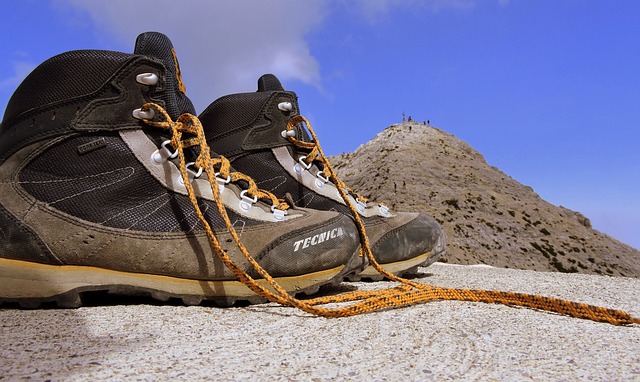Boot tricks and tips for new hikers

Choosing the right hiking boots, knowing how to use them, and taking care of them may seem like a daunting task.
Boots are an expensive purchase and essential to your hiking experience. Follow this Outdoor Revival boot guide to find the right boot for you and learn properly look after your new purchase!
Picking your Boot
Picking the right boot for your activity is important. Take a look at our pro’s and con’s list for the various different types of outdoor footwear.
Barefoot Hiking Shoes
Pros: Very light, very flexible, quick drying, breathable, can be worn during water sports
Cons: Not supportive, don’t offer much warmth
Trail Running Shoes
Pros: Relatively flexible, relatively lightweight, dries faster than boots, more breathable than boots
Cons: Don’t offer much warmth, generally pretty expensive for the actual amount of shoe you are buying, lacking in foot support, lacking in ankle support for rough terrain

Hiking Boots
Pros: Sturdy, ankle support for rough terrain, protects feet against the elements
Cons: Heavy (especially when wet), takes a long time to dry them out, can be too warm in hotter hiking climates
Mountaineering Boot
Pros: Sturdy, ultimate protection against the elements, can use crampons with them
Cons: Not comfortable for long, extended periods of time, heavy
How to Lace Your Boots
Knowing a couple lacing tricks and tips is nice when you are out on the trail. Make sure to always bring an extra pair of laces (they are light!) in your pack in case yours break.

Lacing To Reduce Toe Pressure
Replace your boot without using the holds closest to your toes. You will be left with extra lace, so you can either wrap it around the ankle support or tuck it back into your boot. This is a great idea if you are hiking downhill and experiencing pressure on your toes. Likewise, if your toes are swelling up for any reason this is a helpful solution.
Tightening Your Boot
“Lock Lacing” is recommended if you are trying to tighten your boot up and get more ankle stability. Additionally, if you are someone that prefers less “wiggle room” in your boots, you should use this method. To do this lace, simply criss-cross the laces in an “x” shape all the way up your boot. Once you reach the top, pull the excess tight and the boot should tighten up.
Maintenance
Keeping your shoes in good shape is important to extend their life span. If you practice good maintenance, you will save yourself money and irritation in the long run.
General Boot Cleaning

First, remove laces and insoles to prevent damaging them. Brush off dry dirt with a soft brush to avoid tearing the boot. If there is still dirt left, dilute castile soap with water and brush the boots with the solution. You can also put them in the washing machine with a special boot cleaner, but don’t do this too often. Too much full water submersion will reduce the life expectancy of your shoes.
Drying Your Boots
Don’t leave your boots by a heater or in direct sunlight. The leather will get dried out and start cracking. Instead, leave them in a dry semi warm location. You can stuff your boots full of old newspaper to dry the insides out and this will speed up the whole drying process.
Removing Smells
Stuffing your boots with fabric softeners or car air fresheners will help mute any minor smells. However, if you have very smelly feet, a full wash in the washing machine with special cleaner may be necessary.
Waterproofing
You can buy boot waterproof serum, or you can get a jar of wax to waterproof your boots. Make sure to rub extra solution on the seams as they are prone to leaking the most. Repeat the waterproofing as often as necessary to reduce water damage to your shoes.
If you have any comments then please drop us a message on our Outdoor Revival Facebook page
If you have a good story to tell or blog let us know about it on our FB page, we’re also happy for article or review submissions, we’d love to hear from you.
We live in a beautiful world, get out there and enjoy it.
Outdoor Revival – Reconnecting us all with the Outdoors
